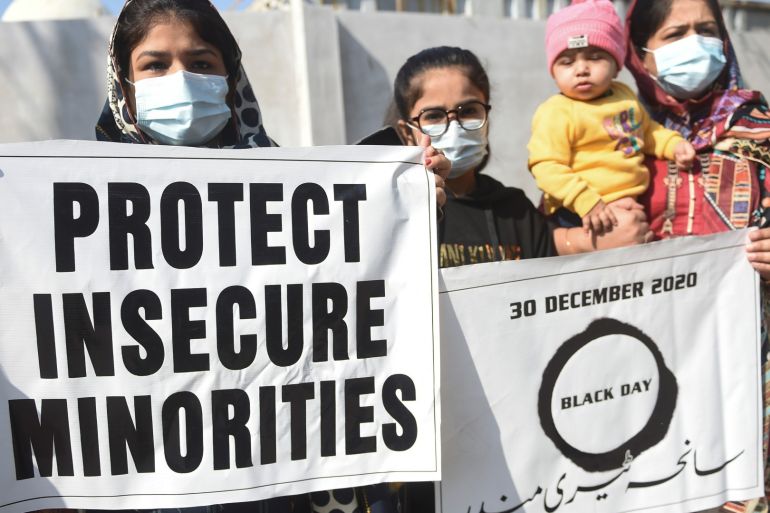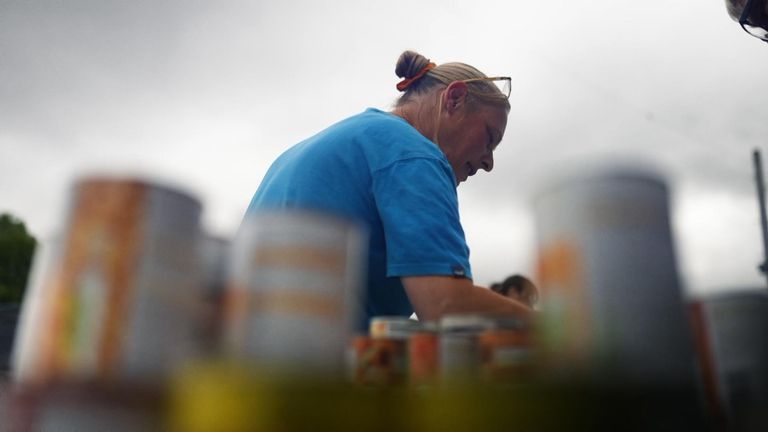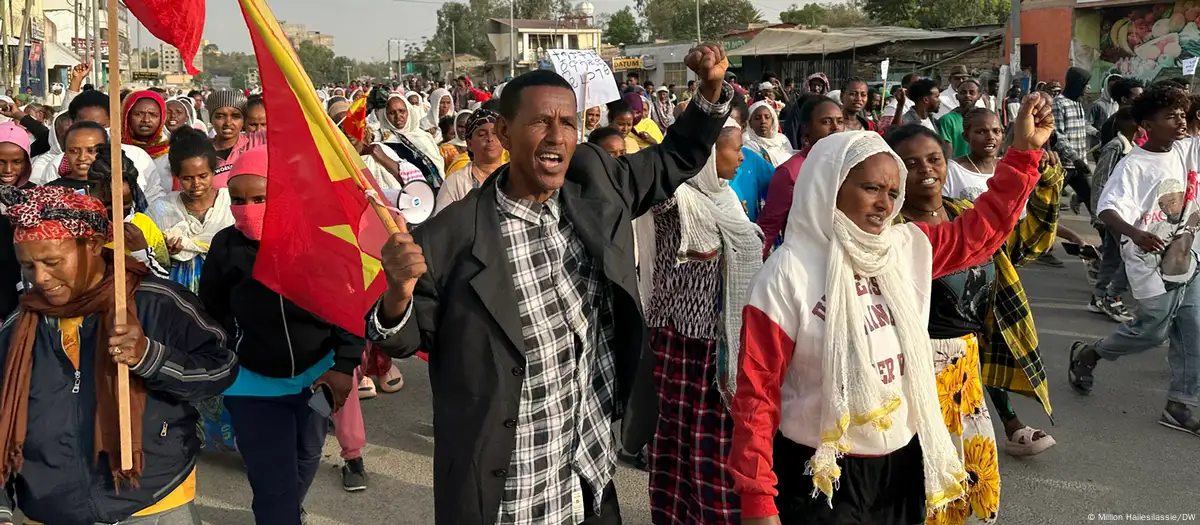Pakistan urged to act against forced child marriages, conversions

Rights experts from the United Nations have deplored abductions, forced marriages and conversions of girls from Pakistan’s religious minorities, urging the government to swiftly halt such practices.
“We are deeply troubled to hear that girls as young as 13 are being kidnapped from their families, trafficked to locations far from their homes, made to marry men sometimes twice their age, and coerced to convert to Islam,” the experts said in a statement on Monday.
“We are very concerned that such marriages and conversions take place under threat of violence to these girls and women, or their families.”
The UN experts called on Pakistan’s government “to take immediate steps to prevent and thoroughly investigate these acts”.
In response, Pakistan’s federal minister for human rights, Riaz Hussain Pirzada, told Al Jazeera the government is doing its best to ensure protection of human rights of the country’s minorities.
“Pakistan’s courts are cognisant of the situation and they are focusing on ensuring implementation of human rights. They are even issuing directions in cases of forced conversions and child marriages. We have set up helplines and given instructions to address such problems,” he said on Tuesday.
The UN experts’ statement came as activists from Pakistan’s Hindu and Christian communities continue to report abductions and forced conversions of young women in the Muslim majority nation.
Every year, dozens of girls – mostly teenagers – from the Hindu community mainly in the southern province of Sindh fall victim to this practice, facilitated by religious leaders and groups, according to activists.
Forced conversions and forced marriages are forbidden in Islam.
According to the 2017 census, there are 4.4 million Hindus in Pakistan – 2.14 percent of total population – while Christians number around 2.6 million, or 1.27 percent of the population.
Dr Ramesh Kumar Vankwani of the Pakistan Hindu Council, a Karachi-based representative body of Hindus in Pakistan, told Al Jazeera that while the number of cases is not as huge as it is made out to be, there is government inaction over the matter.
“The government has not shown willingness to initiate a legislation. So even when there is a single case, it is treated as if there are 10 cases, and it results in disrepute to the country,” he said.
“The absence of a [federal] law to prevent the situation leaves certain elements in society to take advantage. We need legislation to stop this.”
The rights experts, who are appointed by the UN Human Rights Council but do not speak on behalf of the world body, also pointed to reports indicating that Pakistan’s court system enables offences against religious minority girls and young women “by accepting, without critical examination, fraudulent evidence”.
“Family members say that victims’ complaints are rarely taken seriously by the police, either refusing to register these reports or arguing that no crime has been committed by labelling these abductions as ‘love marriages’,” they said.
The UN experts pointed out that abductors often “force their victims to sign documents which falsely attest to their being of legal age for marriage as well as marrying and converting of free will”.
“These documents are cited by the police as evidence that no crime has occurred,” they said.
Peter Jacob, researcher and executive director at Centre for Social Justice Pakistan, a Lahore-based advocacy group, accused the Pakistani government of “outright denial” of the issue.
“In cases of forced conversions and child marriages, religion is used as a cover, so the child who has been forced to convert is never produced in court and hence they cannot express if the conversion or marriage happened by will or by force,” he told Al Jazeera.
But minister Pirzada said reports of an increasing number of forced conversions are part of a “nefarious agenda by Pakistan’s enemies”.
“We know there are people who are paid to run campaigns and prepare reports against the country, and we know the purpose is to malign the country,” he said.
-al jazeera







